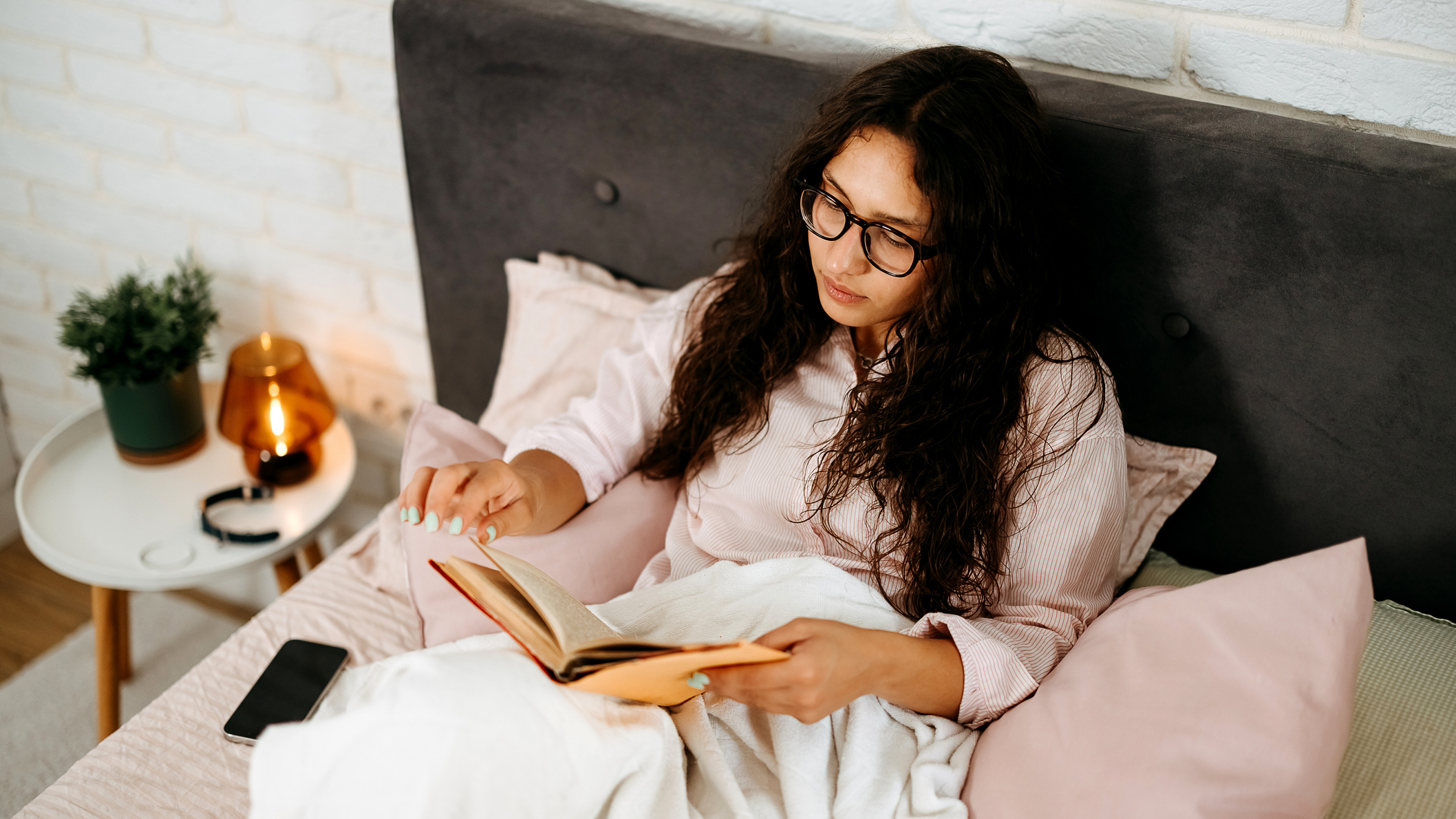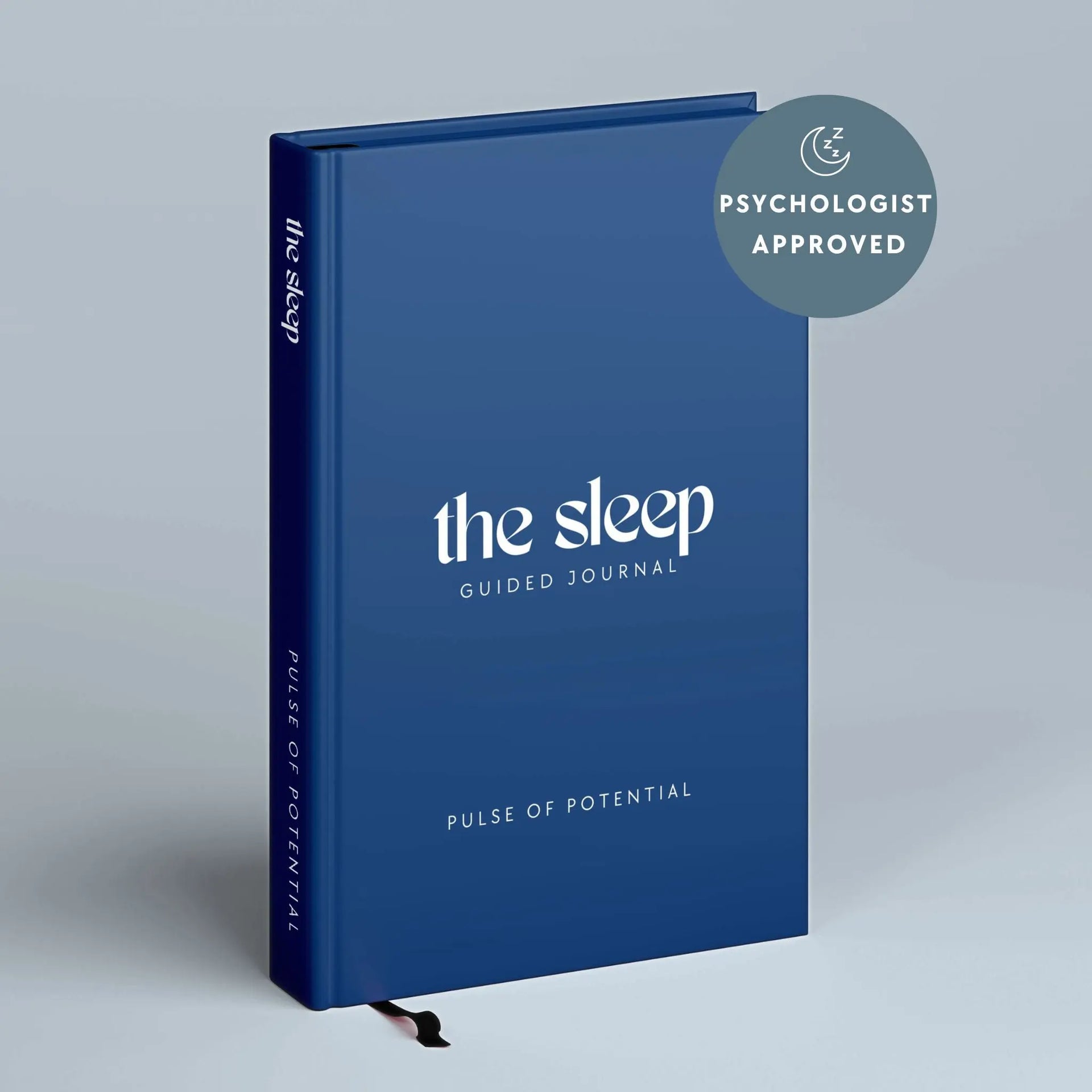I tried the Pulse of Potential Sleep Guided Journal for two weeks and the benefits were surprising
Can a journal really improve your sleep? I put it to the test


Ah, sleep—we're all dreaming of more, but with the CDC finding a third of US adults aren't getting the minimum of seven hours of sleep needed to protect their health, many of us can benefit from acting to improve our ability to sleep.
There are many avenues to explore if you're struggling to get enough sleep—soothing teas, relaxing stretches, mindful meditations, or even counting sheep—but have you ever considered understanding the psychology behind what's keeping you up at night? That's what the Pulse of Potential Sleep Guided Journal offers and it claims to improve your sleep within two weeks.
As a longtime journaling enthusiast who's been scribbling away since I was 16, I've already experienced the benefits of gratitude journaling, but this sleep journal was different. It's grounded in science, using cognitive behavioral therapy for insomnia techniques to tackle the root cause of sleepless nights. Here's what happened when I gave it a go.
I examined my daily habits
As part of the guided journal, I started each day by reviewing and logging what I did the previous day, answering questions about my caffeine and alcohol intake, exercise routine, diet and screen time use before bed. Within one week, I became more aware of my lifestyle habits and seeing my answers in black and white empowered me to make healthier choices.
On the days I noticed I hadn't exercised, I made an effort to get out on a walk, or add a yoga nidra session to my post-bedtime routine. This simple practice, which helps relax both body and mind, made a huge difference to my nervous system and overall sleep quality.
The journal also prompted me to reflect on my diet. While I don't drink caffeine, I saw how even a single alcoholic drink affected my sleep. I quickly realized that moving more, eating well and limiting screen time were the keys to unlocking better rest.
Untangling my thoughts led to epiphanies
Each evening, five minutes before going to bed, I jotted down my thoughts from the day, before taking a deep breath and releasing them from my mind. The idea behind this practice is to note down when you go to sleep and to reveal patterns affecting your sleep quality. This turned out to be a revelation. At the beginning of the challenge, I initially believed I rarely felt stressed or anxious before bedtime. However, completing the sleep log revealed a surprising depth to my worries, from financial insecurities to work-related stress—issues I hadn't fully acknowledged until I wrote them down.
Start your week with achievable workout ideas, health tips and wellbeing advice in your inbox.
I also noticed that within a week of using the journal, my daily brain dumps shifted towards a more positive tone, significantly reducing my anxiety and creating a greater sense of calm before bed.
I started to look forward to bedtime
By the time I was halfway through my two-week test, I began to look forward to bedtime—even with a toddler who struggles to sleep through the night! The new nightly rituals the journal encouraged me to set at the start of the challenge created a positive sleep environment, which is a crucial part of sleep hygiene.
I set the mood with soft lighting, pillow mists and sleep balms, along with herbal tea, magnesium spray and a relaxing skincare routine. I slipped into my cosy bed and rather than scrolling through social media or playing Wordle, I read a book instead.
These evening activities have not only been shown to help improve sleep, but they indicated to my brain that it was almost time for sleep, making it easier to drift off.
Will I keep using the journal?
While this journal can't guarantee perfect sleep (there's no guide on how to avoid toddler wake-ups!), it can help you pinpoint choices you can make during the day that make for a more restful night.
By keeping my sleep routine consistent and following the activities set in the journal, I became more attuned to not just my sleep, but my overall wellbeing. Writing everything down encouraged me to take accountability for my lifestyle choices and inspired me to make small but meaningful improvements.
The two-week experience has made a noticeable difference, and that's why, even though the challenge is over, I'll be sticking to this new sleep plan.
Holly Treacy is a freelance editor with more than 15 years experience. Previously editor of Natural Health magazine and Health & Wellbeing magazine, Holly specializes in health, wellbeing and lifestyle topics and has edited and written for titles including Stylist, Psychologies, Top Sante, Women's Fitness and Platinum. She is passionate about women's health, hormonal wellbeing and mental wellness, as well as creating healthy habits as a busy mum of one. Holly enjoys investigating the mind-body connection and has a holistic approach to health and nutrition. She loves yoga, swimming and walking, especially in the English countryside and she launched, produced and hosted the Walk To Wellbeing podcast.

